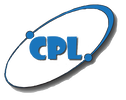A guide for a Newbie in the lab
Compiled below are some links to things you should probably find time to read/watch so that you'll be much more fluent in the lab's jargon and research topics. Some are simple, some aren't, and all are free. Good Luck!
- Neuroscience:
- Free Massive Open Online Classes (MOOCs)
- Medical Neuroscience – Duke University. A thorough, visual, detailed course on brain anatomy and basic nerve cell activity.
- Computational Neuroscience – Washington U. An introduction into the computational modelling behind neuronal activity. Requires basic understanding of linear algebra.
- Neuronal Dynamics – EPFL. A complete computational course which delves into the mathematical models behind single neuron activity.
- Free Massive Open Online Classes (MOOCs)
- What is EEG – YouTube. Really, the first video you should see about EEG.
- Matlab:
- Brain Computer Interface (BCI):
- Video Tutorials – Swartz Center for Computational Neuroscience, UCSD. A series of short videos that help understand how BCIs work.
- Machine Learning:
- There are abundant videos, MOOCs, papers, tutorials, and everything else you can think of, about machine learning (ML) available online. Here are a few that better relate to neuroscience:
- MOOCs:
- Machine Learning – Stanford. A good guide for (concretely) understanding basic regression, neural networks, dimensionality reduction and more.
- Neural Networks for Machine Learning – Toronto. A course given by one of the world's premier ML scientist, Geoffrey Hinton. Not an easy listening experience. Requires a good understanding of linear algebra and British accents.
- Signal Processing:
- MOOCs:
- Computational Methods for Data Analysis – Washington U. Some syllabus which is especially relevant for our work. Strong background in ODEs and PDEs (חדו"א) required.
- MOOCs:
- Cognitive Psychology:
- A free online book (Hebrew) from the Open University.

